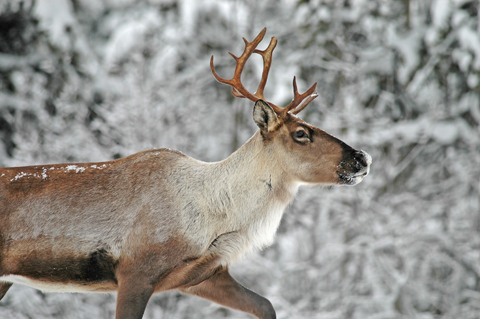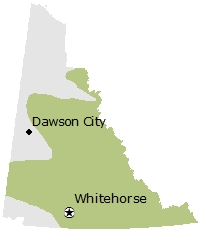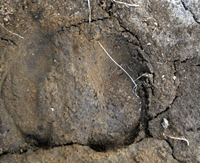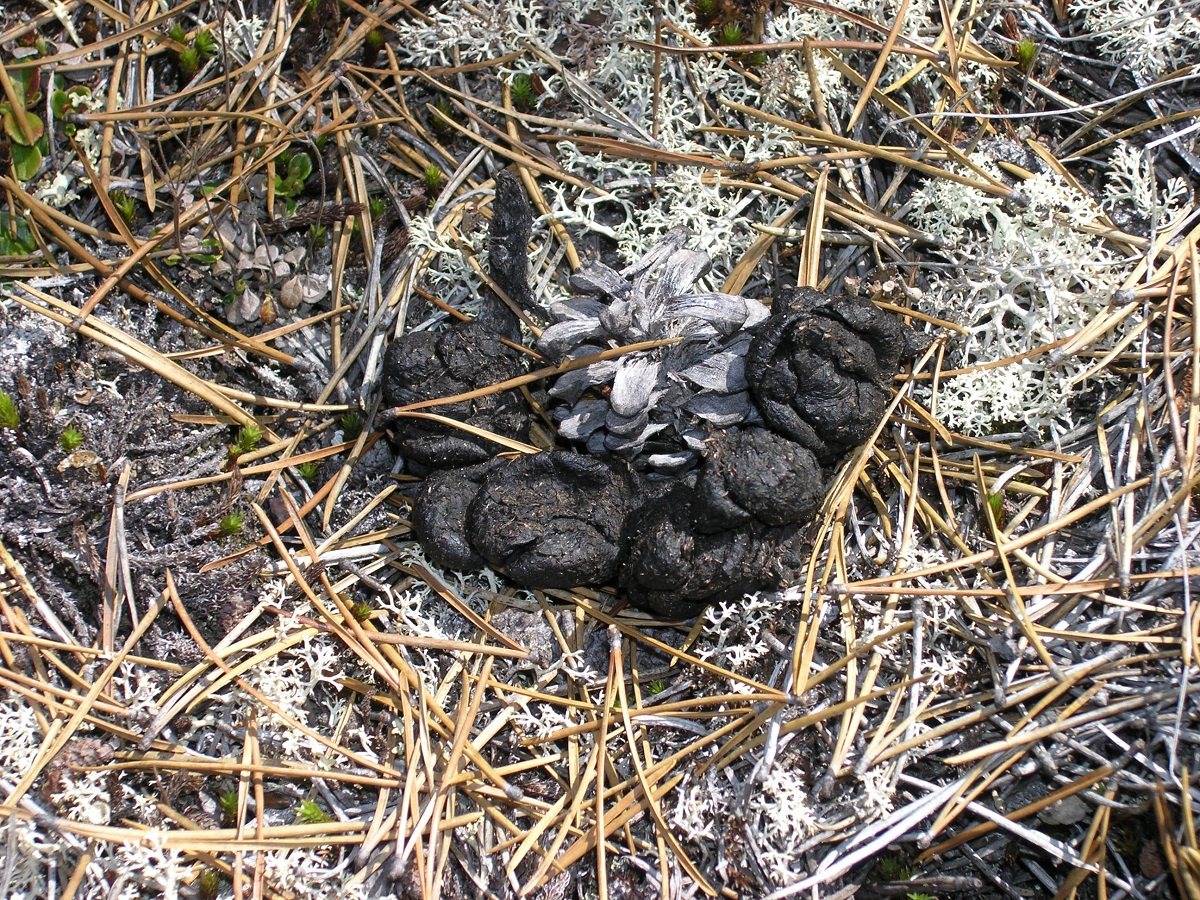
Name
- Common name: Woodland Caribou
- Scientific name: Rangifer tarandus caribou
- Order: Artiodactyla
- Family: Cervidae
Also known as
Northern Mountain Caribou, Boreal Caribou
Viewing opportunities
- Caribou can be viewed along and crossing Yukon highways in the winter.
- The Robert Campbell Highway may allow you to spot part the Finlayson herd in winter. You can also see the Little Rancheria and Carcross herds during winter on the Alaska Highway near Watson Lake and Whitehorse.
- In the summer, you can find Woodland Caribou in subalpine areas above the tree line, where they seek relief from insects.
Description
- Dirty brown fur fading to tan to nearly off-white around the neck and white tail.
- Face darker than rest of the body with a white muzzle.
- White “socks” above the hooves.
- Male antlers have one long curved branch with tines clustered at the top and a “shovel” branching over the forehead. Females also have antlers that are much smaller and not as elaborate.
Fast facts
- Height: 120 centimetres
- Weight: 180 kilograms (males); 135 kilograms (females)
- Lifespan: 13 to 15 years
- Predators: Wolves, Grizzly Bears, Wolverine, Golden Eagles
- Habitat: Boreal Forest, Mountain Alpine
Conservation status
- Yukon: S3 (Vulnerable)
- Global: G5T4T5 (Secure/ subspecies Apparently Secure/Secure)
Yukon population estimate
41,000
Behaviour
Woodland Caribou roam in small herds moving from the boreal forest in winter, up into the alpine tundra in summer, although some herds also spend much of the winter on windswept alpine slopes. They're the only animals that forage substantially on lichen in the winter. Their hooves are perfectly designed to dig through the snow to access the lichens below. They're also efficient swimmers.
Diet
Lichen, grasses, sedges, willows, mushrooms
Distribution

See a map of the ranges of 24 caribou herds in the Yukon.
Sights and sounds



Caribou and people
- Caribou is a popular animal for Yukon hunters, but the season and hunting areas are very carefully regulated to keep the populations healthy.
- Woodland Caribou are very susceptible to disturbance from habitat loss and encroachment.
Southern Lakes Caribou
Management plans
Download the Management Plan for the Chisana Caribou Herd.
Reports
- Science-based guidelines for management of Northern Mountain caribou in Yukon (2016)
- Range Assessment As a Cumulative Effects Management Tool: A Recommended Approach for Environment Yukon (2013)
- Yukon Woodland Caribou Composition Surveys 2012 (2013)
- Three Decades of Caribou Recovery Programs in Yukon: A Paradigm Shift in Wildlife Management (2009)
Aishihik and Kluane Northern Mountain caribou herds:
Bonnett Plume Caribou Herd:
Carcross Caribou Herd:
- Range Assessment as a Cumulative Effects Management Tool: Assessment of the Carcross Caribou Herd Range in Yukon (2015)
- Carcross Caribou Fall Composition Survey 2023 (2024)
Chisana Caribou Herd:
- Population Estimate: Chisana Caribou Herd 2013 (2016)
- Population Estimate: Chisana Caribou Herd 2010 (2013)
- Lichen Assessment: Chisana Caribou Range 2011 (2011)
- Recovery of the Chisana Caribou Herd in the Alaska/Yukon Borderlands: Captive-Rearing Trials (2009)
- Status of the Chisana Caribou Herd (2002)
Clear Creek Caribou Herd:
- Population Estimate: Clear Creek Caribou Herd 2018 (2023)
- Population Estimate: Clear Creek Caribou Herd 2018 - Infosheet (2023)
Coal River Caribou Herd:
- Coal River Caribou Herd Population Estimate 2022 (2024) - Full report
- Coal River Caribou Herd Population Estimate 2022 (2024) - Summary infosheet
Finlayson Caribou Herd:
- Finlayson caribou herd population survey 2022 (2022)
- Finlayson caribou herd late winter population survey 2017 (2022)
- Finlayson Caribou Herd Late-Winter Population Survey (2007)
Ibex Caribou Herd:
- Ibex Caribou Fall Composition Survey 2023 (2024)
Klaza Caribou Herd:
- A Range Assessment for the Klaza Caribou Herd in the Dawson Range of West-Central Yukon (2016)
- Inventory Studies: Klaza Caribou Herd 2012 Activities (2013)
Laberge Caribou Herd:
- Laberge Caribou Fall Composition Survey 2023 (2024)
Little Rancheria Caribou Herd:
- Little Rancheria Caribou in the Yukon: Evaluation of Winter Habitat Quality and Habitat Use (2004)
- Habitat Management in the Yukon Winter Range of the Little Rancheria Caribou Herd (2003)
South Nahanni and Coal River caribou herds:
Wolf Lake Caribou Herd:
For questions about caribou, email the ungulate biologist (caribou) at kelsey.russell@yukon.ca or phone: 867-667-5465 or toll free in the Yukon: 1-800-661-0408, ext. 5465.